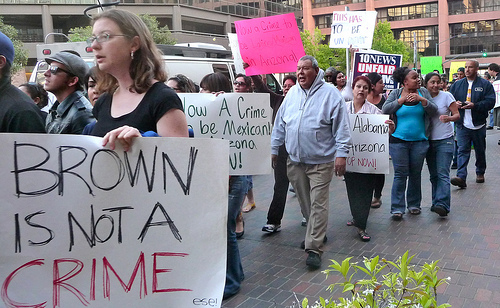SAN FRANCISCO—The city of San Francisco is assessing whether or not to implement stricter immigrant protections while the progressive city’s officials aim to clarify protections for people living in the country illegally.
The Board of Supervisors are expected to vote on the proposal Tuesday, which suggests to implement guidelines about when law enforcement can turn over criminal suspects to Immigration and Customs Enforcement. The proposal would allow police to contact immigration officials if the suspect is being charged with a violent crime and has been convicted of a violent crime within the last seven years. That would be the only time city workers, including police officers, could disclose immigration status.
Advocates of sanctuary protections faced criticism in light of the proposition. It was proposed a year after Kathryn Seinle, 32, was shot and killed walking along a waterfront pier by suspect Juan Francisco Sanchez-Lopez – a Mexican national who had been released from jail, despite federal requests to detain him for deportation proceedings.
The sheriff at the time, Ross Mirkarimi, defended the release of the man, a repeat drug offender and regular border-crosser. He lost re-election to current San Francisco Police Department Sheriff Vicki Hennessy.
Hennessy took office in January and opposes the legislation. She expressed that she wanted discretion regarding whether or not federal immigration officials were involved and as a constitutionally elected official, does not have to follow the board’s orders.
Sheriff Hennessy has said that the office receives about five requests a week to notify ICE of a detainee’s status. She has not notified ICE in any of those instances, she claimed.
A board vote on the ordinance was postponed earlier this month because the measure’s chief sponsor, Supervisor John Avalos, said he wanted everyone on the same page.
Advocates of sanctuary protections emphasized that there needs to be a clear division between local law enforcement and federal immigration officials in order to cultivate trust. The law dates back to 1989.






